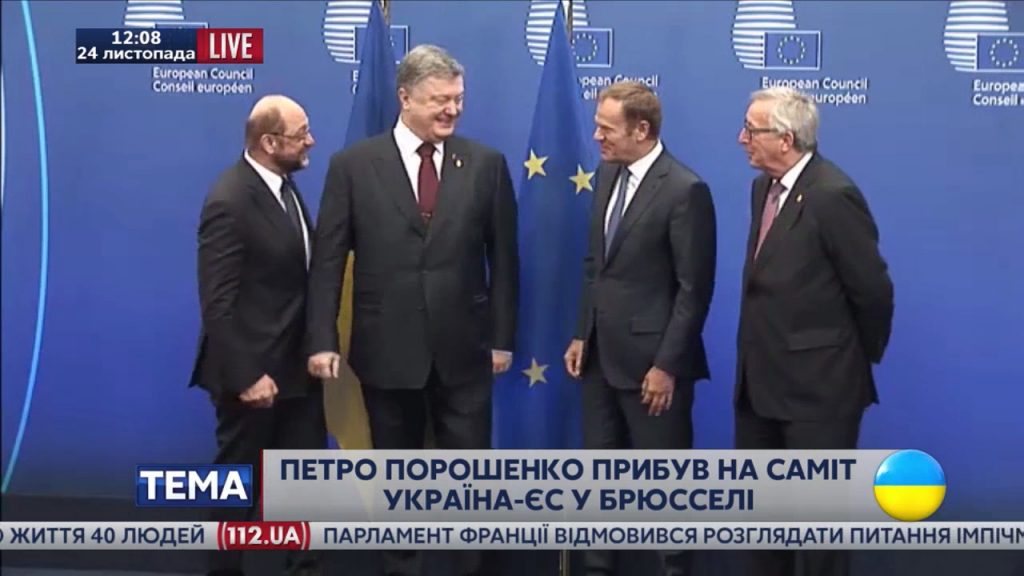On November 24, 2016, EU-Ukraine summit was held in Brussels. It was a long-awaited event. Originally the event was planned for May 2016, but was postponed a couple of times this year. In spring, the Dutch referendum queered the plans. In summer and autumn – Brexit consequences and the EU leaders’ decisions about the new “mechanism of suspension” of visa-free regime… In addition to that, several EU member states questioned whether Ukraine is fighting corruption. President Poroshenko hoped until the last that this summit could finally solve the issue of a visa-free regime (UCMC has already noted about the latest progress in the visa-free regime issue – digest). However, the issue remains unsolved. What objectives were achieved? What objectives were not achieved? – the top 5 conclusions of the summit, adapted from publications in «Evropeyska Prava» and «Glavcom».
- A Memorandum of Understanding on a Strategic Energy Partnership between the EU and Ukraine was signed together with the European Atomic Energy Community.
- A financing agreement “EU Anti-Corruption Initiative in Ukraine” was signed. The total budget of the initiative is EUR 16.34 million, of which the EU contributes EUR 15 million and the Ministry of Foreign Affairs of Denmark – EUR 1.34 million. The EU funds will be used to strengthen the capacity of institutions responsible for fighting corruption – the National Anti-Corruption Bureau of Ukraine, Specialized Anti-Corruption Prosecutor’s Office, National Agency for Prevention of Corruption and other institutions.
- For technical reasons an agreement, which, as planned would allow the EU to allocate EUR 104 million for public service reform in Ukraine, was not signed on the day of the summit. According to preliminary information, these funds should go into the budget, and then Ukraine should use them for implementing the public service reform program, in particular – for raising wages to a “decent level”.
- On Thursday, the date of the beginning of a visa-free regime was not determined in Brussels. Meanwhile, Jean-Claude Juncker, the European Commission President called for the EU countries to provide visa liberalization for Ukraine by the end of the year. Jean-Claude Juncker and Donald Tusk assured that France and Germany do not intend to block a visa-free regime for Ukraine and Georgia. The European officials acknowledged that the internal debate about the mechanism of suspension of a visa-free regime is still ongoing (thus this regime is not launched), but there is every reason to believe that the problem will be solved by the end of the year.
- The EU macro-financial assistance of EUR 600 million was deferred. Macro-financial assistance is a long-term loan that Ukraine receives from European financial institutions through the mediation of the European Commission. Its interest rates and repayment terms are much more favorable than those of the loan from the IMF. Ukraine has not managed to receive the money because Kyiv does not fulfill two conditions. The first condition relates to trade – it is the ban on the export of unprocessed timber. The second one has become public only recently – social security payments to internally displaced persons (IDPs) – namely, suspension of pension payments. EU requires that Ukraine should continue payments to IDPs. If Ukraine wants to integrate Donbas, it cannot do without social security payments, according to the EU.



